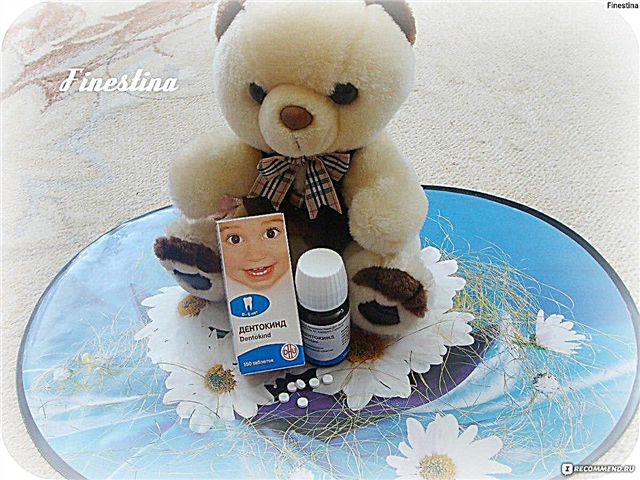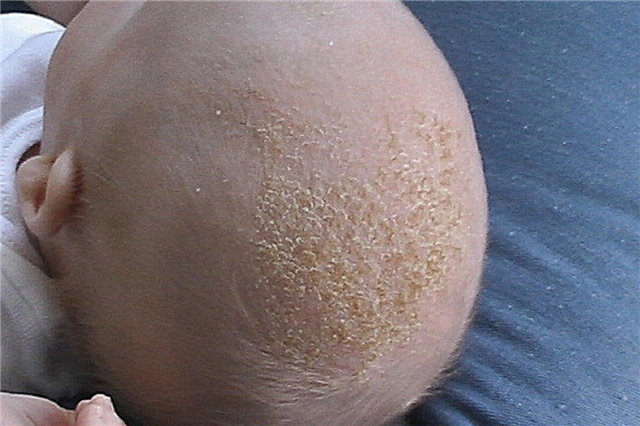A child's sleep is one of the most important issues of concern to young parents. It's nice when the baby sleeps peacefully and sweetly. A sleeping child of an early age must be watched in order to notice problems in time. One of them is that the baby does not close his mouth while sleeping. Most often this is normal, although sometimes such a phenomenon can indicate pathology.

Healthy children sleep soundly and peacefully
How a healthy baby should sleep
If the baby is healthy, he sleeps soundly and serenely. However, infants under three months are not yet familiar with the concepts of day and night, so they may wake up several times for a short time during the night to feed and stay awake. There are several signs of sound sound sleep:
- the baby breathes calmly and evenly;
- the child does not cry out or twitch during sleep;
- limbs of normal temperature, not cold or hot;
- the baby does not emit extraneous sounds (wheezing, whistling and other noises are not heard).
A healthy baby falls asleep quickly and wakes up easily. Good sleep is facilitated by an evening walk along the street in good weather and swimming in water with a temperature of 36-37 degrees, as well as massage and gymnastics conducted by parents.

Sleep crumbs are always a matter of concern for parents
Deficiencies in mouth breathing
Nasal congestion is common in young children under one year old. This can be caused by dry air in the apartment, hypothermia while walking or swimming, allergies, or the lack of regular wet cleaning in the children's room. In this case, the baby opens his mouth in a dream due to the fact that it is difficult for him to breathe, he may even stick out his tongue. To solve the problem, it is necessary to drip a water-salt solution into the baby's nose and suck mucus from the nose with an aspirator.
Attention! It is forbidden to instill vasoconstrictor drops in the nose for preventive purposes. They can be used only with severe congestion, which is accompanied by swelling of the mucous membrane, and only as directed by a doctor.
Why does a newborn sleep with an open mouth
Not all parents know why the baby's mouth can open during sleep, and why the baby breathes through its mouth.
If a child sleeps with his mouth open, there can be many reasons. Most often, this condition is caused by the following features:
- by nature, narrow nasal passages (which is quite common in babies);
- physiological rhinitis of newborns caused by the child's adaptation to the outside world;
- a runny nose caused by an acute respiratory illness or allergy;
- shortness of breath due to a disease of the upper or lower respiratory tract (laryngitis, bronchitis, pneumonia);
- increased body temperature.
The first two reasons do not require medical attention and do not adversely affect the health and well-being of the baby.
Congenital anomalies
Sometimes sleep with an open mouth is caused by a congenital curvature of the nasal septum. In this case, the child may need surgery. However, such a congenital anomaly is quite rare. More often than not, mouth opening during night and day rest is due to other reasons.
Attention! Young children often have stridor - noisy breathing with wheezing and whistling when they feel normal. This condition is not dangerous, but requires the consultation of a pediatrician.
Should you sound the alarm for parents
When a newborn breathes through his mouth in a dream, this is a reason to consult an ENT doctor. However, do not sound the alarm immediately. Observing a child's sleep, you need to pay attention to the following points:
- exactly how the baby breathes: nose or mouth;
- what is the child's pulse: normal or rapid;
- does the baby have wheezing and coughing;
- Does the baby snort in a dream;
- how often the child wakes up, and what caused the awakening: hunger or discomfort.
These observations will help you know whether to worry about an open mouth while sleeping.
When a newborn sleeps with his mouth open, parents should listen to his breathing. Normally, it should be almost silent and rhythmic. The following signs may alert you:
- whistling sounds on inhalation or exhalation;
- wheezing;
- sniffing nose (speaks of his stuffiness);
- snoring (a healthy little child never snores).
Parents should ensure that the baby does not sleep on his back until three months. At this age, there are often respiratory arrests, leading to sudden infant death syndrome. When the baby lies on his back, he may regurgitate or choke on mucus from the nose, so the recommended sleeping position of the baby is only on the side.
Do I need to see a doctor
If the baby does not have any signs of respiratory distress, you should not contact a doctor. Most likely, the child has just physiologically narrow nasal passages. With age, they expand, and the baby will no longer open his mouth during sleep.
If in a dream the child breathes noisily and heavily, it means that he is sick. This is a good reason to contact your pediatrician. In children at an early age, allergic reactions are common, provoking respiratory distress and even stenosis of the larynx (false croup).
Parents should ensure that the baby does not come into contact with allergens such as animal dander, dust and household chemicals. In winter and autumn, to prevent acute respiratory infections, the baby's nose should be washed daily with a water-saline solution, it effectively removes all bacteria, viruses and allergens from the mucous membrane. This procedure can be carried out an unlimited number of times, because the saline solution is absolutely harmless and is not a medicine. It is also worth giving the child drugs that increase immunity, for example, drugs based on interferon.

If the child is developing well and is feeling well, do not worry.
How to deal with the problem
Parents should be well aware that an open mouth while sleeping at night is not a disease. This condition can be both normal and pathological. In order to determine whether a child needs treatment, it is necessary, first of all, to find out the reason because of which the mouth can open, and, if possible, eliminate it (for example, humidify the air in the room or remove all allergens from the nursery, open the window) ... After that, the problem will resolve itself. Nasal breathing will be restored and the baby will stop breathing through the mouth.
Important! Any medicine can be given to an infant only as directed by a doctor. Any self-medication is dangerous to the health and life of an infant.
In most cases, according to Komarovsky, changing the conditions in which the baby lives (for example, more thorough wet cleaning) helps to solve the problem of difficulty in nasal breathing. If the baby is breastfed for up to a year, the mother should exclude all allergens from the diet so as not to provoke allergies and suffocation in the baby. Babies receiving complementary foods can only be given hypoallergenic food in strict accordance with age.
Home climate control
In the cold season, when central heating works in city apartments, children suffer greatly from dry air. This is expressed in significant difficulty in nasal breathing. To solve the problem, you should install a humidifier in the nursery or put a large pot of water near the baby's crib so that the moisture evaporates and makes the air more humid.

Many babies open their mouths in their sleep.
Do not panic and jump to conclusions if a 2 month old baby periodically opens his mouth in a dream, but breathes easily and freely. By the age of three months, babies often make unconscious grimaces during the day and night rest, this feature will pass over time.
However, in case of any respiratory disorders, you should urgently consult with doctors, because such diseases in babies develop rapidly, and the situation can quickly get out of control.



